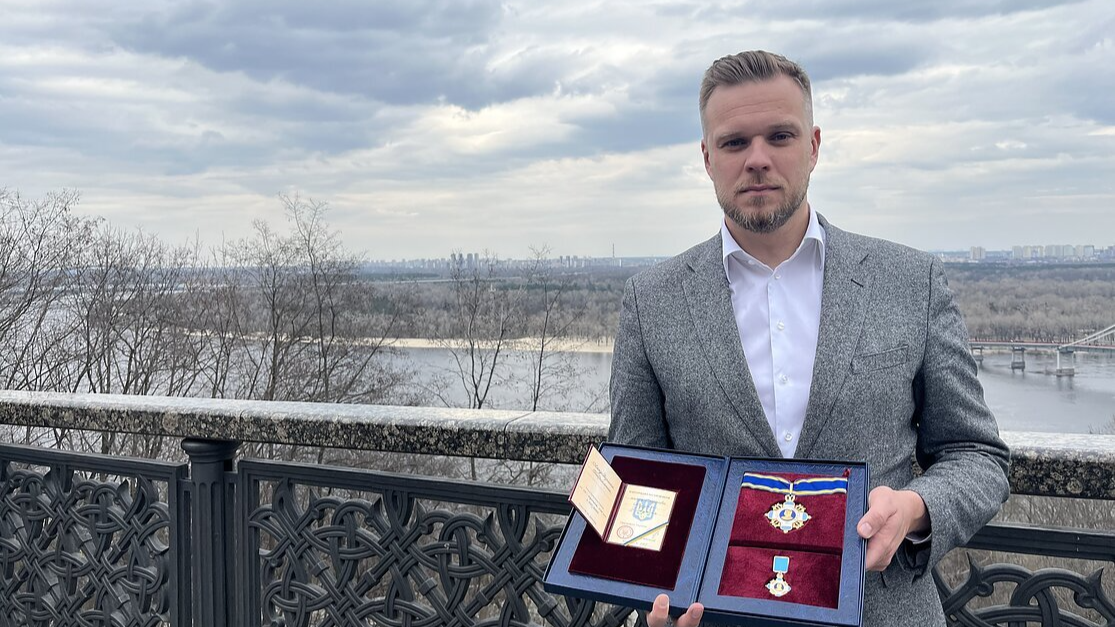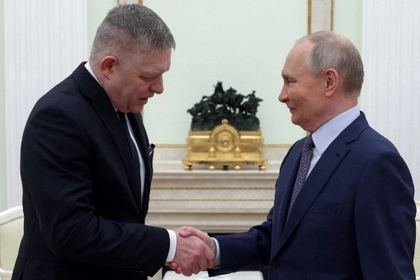Donald Trump on Thursday blamed President Volodymyr Zelensky for Russia’s invasion of Ukraine, saying he should have headed off the war before it started.
“And that doesn’t mean I don’t want to help him, because I feel very badly for those people,” the US Republican presidential candidate told the PBD podcast, but added, “He should never have let that war start.”
JOIN US ON TELEGRAM
Follow our coverage of the war on the @Kyivpost_official.
When talking to a very friendly audience in Patrick Bet-David’s conservative show, Trump repeated his well-worn cynical comments about Zelensky, again calling him “the greatest salesman I’ve ever seen. Every time he comes in, we give him $100 billion,” he said, again citing fictitious numbers, as has been his habit throughout his career.
In recent days the former president has begun to temper his remarks, however slightly, about his relationship with Russian President Vladimir Putin. While repeating his refrain that the full-scale invasion of Ukraine in 2022 in Ukraine “never would have started” had he been in the Oval Office, Trump repeated his claims to the podcast’s 2.2 million subscribers (1.25 million views as of Thursday night) that he was responsible for putting an end to Russia’s Nord Stream 2 gas pipeline before President Joe Biden went on to “approve it.”
Washington-insider newspaper The Hill has been fact-checking that claim since Trump began rolling it out this summer:

Washington Insider: US Congressional Hearings on Corruption in Ukraine Are Coming
“In fact, Trump did not stop Nord Stream 2 — he enabled it,” the newspaper explained in June. “The Nord Stream 2 pipeline went from zero to 90 percent completed during Trump’s presidency. Rather than stop it ‘dead,’ the Trump administration rejected years of bipartisan congressional calls for imposition of sanctions to stop the project. Only when Congress, in frustration, passed mandatory sanctions did the administration finally take concrete action. But by then it was too late.”
US slaps sanctions on two Chinese manufacturers of long-range strike drones
The US on Thursday announced the imposition of sanctions on two Chinese companies, one Russian entity, and one Russian individual, in connection with the manufacture of components for Moscow’s Garpiya (Harpy) long-range strike drones. This represents the first time Washington has sanctioned Chinese enterprises for supplying weapons used on Ukrainian targets.
The affected entities include Xiamen Limbach Aircraft Engine, a Chinese producer of drone engines, and Redlepus Vector Industry Shenzhen, an intermediary in their supply.
The Russian individual was identified as Artem Yamshchikov, whose company TD Vector imports the drones for the already-sanctioned Russian firm Izhevsk Electromechanical Plant Kupol.
“This was the first time we actually saw a Chinese company manufacturing a weapon itself that then was used on the battlefield by Russia,” said State Department spokesman Matthew Miller.
“That is why we continue to work with our allies and partners around the world to make clear to China that this practice is unacceptable and they need to take steps to counter it.”
The Harpy drone was designed by a team of both Russian and Chinese military engineers and is made in Chinese factories with the help of Russian defense contractors.
“Russia increasingly relies on the expertise of foreign professionals and the import of sophisticated technologies to sustain its weapons program and advance its military campaign against Ukraine,” said acting Treasury Under Secretary for Terrorism and Financial Intelligence Bradley Smith.
The United States has repeatedly warned China and others against supplying the Russian military with weapons and their components and hit several Chinese companies with sanctions for sending components to Russia that later went into weapons when assembled there.
Deputy commander of Russian special operations unit killed at home in Moscow region
A deputy commander of a Russian special forces unit, 44-year-old Nikita Klenkov, was shot dead in the region around the nation’s capital, the Institute for the Study of War (ISW) reported on Thursday, citing Russian sources.
A high-ranking GRU (Russian Main Military Intelligence Directorate) officer, Klenkov served with military unit 43292 in Ukraine and was deputy commander of the Special Operations Forces Training Center.
Authorities in Moscow claimed that Klenkov's murder was a planned contract killing and opened a criminal investigation into the murder. However, they have not leveled accusations against Kyiv or other Western actors, treating it as a domestic criminal investigation.
Ukraine claws back land in Donetsk as Russia does the same in Kursk
Moscow’s forces in the Russian region of Kursk and Ukrainian Armed Forces (AFU) soldiers in the Donetsk city of Pokrovsk each made gains his week, pushing back the respective invading troops.
ISW reported that Russian forces advanced on the Western side of the Ukrainian salient in Kursk, referencing geolocated footage published on Thursday. The images indicate that Moscow’s units advanced south of Zelenyy Shlyakh (southeast of Korenevo) and reportedly continued fighting southeast of Korenevo near Lyubimovka, Malaya Loknya, and Novoivanovka.
I don't know which unit to credit now, but a russian BMP-3 explodes spectacularly South of Zelenyi Shlyakh, Kursk
— PJ "giK" (@giK1893) October 17, 2024
It's wreckage ends up in the field approx here: 51.307278, 35.086444 pic.twitter.com/BVCLLnyW3u
Meanwhile, AFU units recently retook territory within Toretsk, amid continued fighting in the area on Thursday. Geolocated footage published earlier in the week seems to show Ukrainian forces setting up new positions in the central part of town. Russian milbloggers, however, claimed that Moscow’s forces had advanced up to 2.2 kilometers in depth north of Niu York, south of Toretsk, although ISW said it could not verify that information.
You can also highlight the text and press Ctrl + Enter









